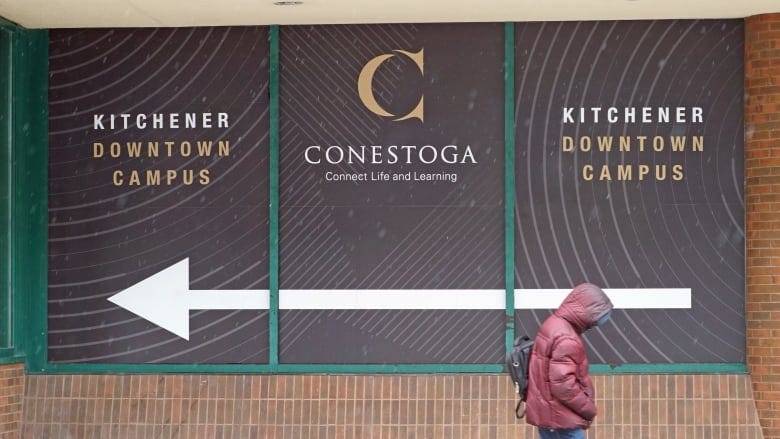Canada's Policy Tweak Spooks International Students
A Surge of Concern Among Current and Prospective Indian Students in Canada.

A Surprising Turn for Prospective Indian Students
For Indian students looking toward Canada for their higher education, the recent surprise announcement by Immigration, Refugees and Citizenship Canada (IRCC) brings a significant shift. The decision to stop issuing work permits to international students graduating from public-private partnership programs three-and-a-half months earlier than planned—from September 1 to May 15—has caught many by surprise. This move, aimed at preventing institutions from altering their admission schedules to bypass upcoming policy changes, announced earlier in January this year, could dramatically alter the plans of countless Indian students who had eyed these programs as a gateway to Canadian work experience, post-graduation and a possible permanent residency (PR).
Ontario's Predicament: Navigating New Challenges
The province of Ontario, alongside the greater Montreal area, is at the center of a major policy shift impacting at least 14 schools involved in public-private partnerships, all preparing for its fallout. Plans of IRCC to approve only 360,000 new students, a reduction of 35% from the previous year, purportedly aim to ease pressures on housing, healthcare, and other essential services. This adjustment is anticipated to result in a decrease of about 133,000 international students. Indian students, for whom Ontario has been a preferred study destination in Canada, are now prompted to re-evaluate their choices. The decision that 96% of international study permits will now be allocated to public schools signifies a forthcoming competitive scramble for admissions. This change in policy marks a decisive, albeit fiercely contested, step towards tightening the admission of international students, driven by wider issues related to housing affordability and the increased cost of living in Canada.
A Shift in International Student Dynamics
Despite these tighter regulations and and cap on the number of new international students, Canada remains one of the most sought-after destinations for international students, rivalling the U.S., largely because of its relatively straightforward process for obtaining post-graduation work permits. The international student sector brings in approximately US$16 billion annually to Canada, showcasing its significant economic impact. With Indian students making up around 40% of this demographic— with Punjab at the forefront— followed by 12% from China and 16,000 from Vietnam, the changes not only affect the individuals' future plans but also Canada's international education landscape, with maximal impact on India.
Navigating New Paths: Understanding Canada's 2024 Study Visa Rules
In January 2024, international students, including those from India, looking to pursue their studies in Canada were informed of a pivotal shift in the student visa application process, introducing significant modifications. Among these, the introduction of the Provincial Attestation Letter (PAL) stands out as a critical new requirement for those applying to undergraduate or postgraduate diploma/certificate programs, where its absence now results in the rejection of the visa application. On a positive note, aspirants targeting master’s or doctoral studies are exempt from this requirement, highlighting Canada’s differentiated approach to various educational levels. This development emphasizes the importance of meticulous planning for Indian students to align with the new visa policies.
Brighter Horizons: Post-study Work Visa Extensions and Spousal Support
Amidst the stringent new visa rules, there's promising news for Indian students pursuing master’s programs in Canada. The extension of the post-study work visa to three years offers a valuable opportunity for graduates to gain Canadian work experience, enhancing their settlement options post-education. This policy underscores Canada’s recognition of the importance of skilled graduates in its workforce. However, changes in regulations surrounding the spouse open work permit could affect decisions for married students, limiting spousal visa support to those enrolled in master’s or doctoral programs. This shift emphasizes the need for strategic planning among Indian couples aspiring for a Canadian education and life thereafter.

CBS Report Debunks that Private Institutions are to Blame.
The CBC News report sheds light on a significant development in Canada's approach to international students, not only from the perspective of those coming from India but also Canadian citizens and PR-holders of Indian origin, in the wider context of their political-economy. This report effectively rebuts the political rhetoric that the indiscriminate admissions of international students by private educational institutions were responsible for generating stresses in the domestic economy. Here are some critical takeaways and their implications.
1. Growth in International Students
The report attributes the "nationwide explosion" in international student numbers not to private colleges, as previously suggested by some politicians, but mainly to public institutions, especially in Ontario. This revelation counters the narrative blaming "bad actors" among private colleges for the surge in international students. For prospective and existing Indian students, this indicates that public colleges, which have been pivotal in driving this growth, could offer more stable and reputable opportunities for international education in Canada.
2. Economic Implications
International students represent a significant financial boon for Canadian educational institutions, contributing tens of billions of dollars to the post-secondary system amidst provincial austerity measures. Indian students, as part of this cohort, are a substantial economic force, but they also face high tuition and living costs. The report highlights the importance of viewing international students not just as revenue sources but as individuals seeking quality education and life opportunities.
3. Policy Changes and Caps on Study Permits
The federal government's introduction of a two-year cap on study permits in response to the rapid growth of international students signals a shift in policy that could have profound effects on prospective students from India. This cap aims to alleviate pressures on housing and infrastructure but may also result in higher competition for study permits, potentially making it more challenging for Indian students to secure opportunities in Canada, especially in a scenario of hiked tuition fees.
4.Provincial and Federal Government Roles
The analysis criticizes both provincial and federal governments for their roles in the surge of international students, suggesting a lack of foresight and management of the associated challenges, such as housing demands. Indian students considering Canada for their studies should be aware of the political and administrative landscape, as it directly influences their educational and living experiences.
Impact on Indian Students
For existing Indian students, these developments may cause concern regarding their continued stay and study in Canada, especially if their institutions are among those significantly impacted by the permit cap. Prospective students from India might need to reassess their options, considering the tighter competition for permits and the evolving policies of Canadian institutions toward international students, of which higher educational expenses and fees would be an inevitable part.
Looking Forward
Indian students, both prospective and current, need to keep abreast of policy changes in Canada, particularly those related to international study permits and post-graduation work opportunities. Engaging with educational institutions and student advocacy groups is crucial for effectively navigating these changes. However, this situation does not warrant undue alarm. It is advisable to seek guidance from independent legal and immigration experts instead of depending on self-proclaimed consultants and agents who lack any fiduciary responsibility.
In summary, while Canada remains a sought-after destination for international students, including those from India, particularly Punjab, the recent policy shifts and the spotlight on the economic motivations behind the recruitment of international students necessitate a careful reassessment of the challenges and opportunities facing these students in the current Canadian educational landscape.
Contextualizing Policy Changes in Indo-Canadian Relations
Attributing these significant policy shifts merely to the recent downturn in diplomatic relations between Canada and India, particularly following the assassination of Nijjar, a Canadian Sikh citizen advocating for a separate Sikh state, outside his Vancouver residence last year, would be an oversimplification. These changes are more deeply rooted in Canada's internal politics, where Prime Minister Trudeau grapples with declining approval ratings amidst economic challenges, persistent inflation, and high unemployment rates. Furthermore, considering Canada's vast landmass against its relatively small population of barely 40 million, the proportional impact of even a hundred thousand international students on the economy is notably greater than in countries like the USA. From the standpoint of individual students, maintaining caution and conducting thorough due diligence remains critical, even as they consider alternatives like Australia and New Zealand for their studies.







